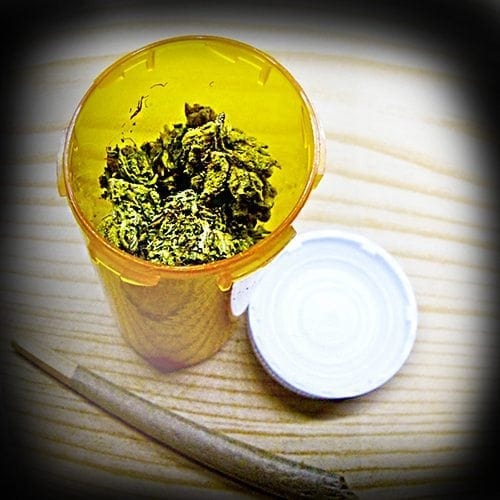
It’s Spring season which also means it’s allergy season.
Over the last few years, however, one allergy popping up that I’m sure no one expected to see: Cannabis.
I know what you are wondering, can I really be allergic to Cannabis?
Well…yes and no.
As Cannabis becomes more mainstream, more instances of possible Cannabis allergies have popped up with it. Though it is possible, in most cases it’s proven to not be likely. The only study we have proving it is a small trial from 2018, reporting that people are more likely to have a cannabis allergy if they have allergies to cat dander, molds, dust mites, or plants. There was no direct answer on whether the issues lies naturally with the plant or something else.
The biggest argument is the known anti-inflammatory properties of Cannabis. How can something that helps with allergies cause them?
Well, it’s still a plant.
Cannabis can cause a number of symptoms if it’s inhaled or comes in contact with some. Stay on the lookout for these symptoms to avoid a negative reaction:
- Dyspnea, or labored breathing, is a common symptom of a weed allergy. This could happen to you even if you didn’t smoke or otherwise inhale any of the marijuana, though some people turning up with this symptom have worked around hemp used in textiles too.
- Skin irritation (itchiness, inflamed, red skin, hives, dry, scaly skin)’
- Conjunctivitis, good old pink eye. Weed can do it to you if you’re allergic!
- Congestion or sneezing, this is when the lining of your nose becomes inflamed, such as due to exposure to an allergen like weed. Predictable consequences include congestion, sneezing, stuffiness, runny nose, and post-nasal drip. All that congestion can easily give you a headache.
- Itchiness, it’s not normal to feel intensely itchy after exposure to marijuana (or ever, really). This is a big red flag.
- Hay fever
- Nausea or vomiting
Without more federal approval for deeper research, the exact reasoning on the ‘why” can’t be pinpointed. There have been a few ideas that can attest to some situations but not many that stand the test of time. In cases of those who have a reaction but are not allergic, many believe it lays in uneducated choices.
While many allergic reactions can come from outside elements that are not inherent to Cannabis (such as mold) many factors can go into why someone may feel reactions all together.
Terps the Word
When consuming Cannabis in any form, the overall effect and smell that you get from that particular strain comes from Terpenes, not THC alone. Terpenes or, as it is referred to on Social Media, Terps are a word you may have seen or heard in a dispensary but may not be too familiar with.
Terpenes are naturally occuring in a variety of products (food, perfume, plants, lotions, etc.) and can be also found in high concentrates within the female cannabis plants. Though THC is the psychoactive cannabinoid, Terpenes help amplify the therapeutic effects of Cannabis.
With that being said, different types of Terpenes have different taste and smell that can be detected.
There are tons but, the most common Terpenes are Myrcene, Limonene, and Caryophyllene; all of which have corresponding effects and smells.
For example, Limonene typically has a strong lemon and/or citrus taste and smell depending on how high levels are testing. Caryophyllene, on the other hand, tends to be found in Thai basils, cloves, Cinnamon leaves and black pepper giving it more of a spice taste. Anyone with any allergies or affinities against those can be led to believe they’re allergic to Cannabis when in fact, they are not.
I can personally attest to a variety of consumers with complaints of being allergic to Caryophyllene, or at least not enjoying the taste as it can be harsh and peppery. Ironically enough, Caryophyllene is the anti-inflammatory terp.
So next time you hit the bong and it’s extremely harsh or packed full of lemon, check those Terpene levels.
Cannabinoid Hyperemesis
Terpenes aren’t the only things that can lead some stoners astray.
Over the last decade, a new factor has been raising some eyebrows in this argument. A small, but growing, number of chronic Cannabis users have been reporting intense chest pains, dehydrations, weight loss, trouble breathing, nausea and eventual vomiting. This is also leading them to believe they are symptoms of an allergy. After a couple of recorded incidents, the issue was found to be something called Cannabinoid Hyperemesis Syndrome.
It’s a mouthful.
It’s not to be confused with synthetic Cannabis, or Spice that has been causing other problems across the country.
The hyperemetic phase of the syndrome usually ceases within 48 hours after stopping Cannabis use.
Cannabinoids that naturally occur in the plant affect our central nervous system to help ease some ailments and make us feel the way we do; this syndrome is thought to be an overstimulation from those Cannabinoids. Though this is the logic of how your body reacts to it, no one knows why some are effected and other long time users are not.
Since Cannabis is still federally illegal, there isn’t enough research on what exactly is causing this. In addition, most states have only had a handful of cases. Considering the negative stigma many in the medical field have towards Cannabis, those with symptoms never tell anyone about their experiences. W
ith the lack of study, not everyone is convinced it even exist either.
Authors of a 2006 review out of Australia criticize that defining of CHS for [sic] poor study design and for misattributing increases in cannabis use to liberalized laws.
“Cannabis has been consumed for many centuries and is currently used by millions of people in many countries,” the authors wrote. “It is hard to believe that a distinctive syndrome caused by cannabis has never been noted before by users or clinicians.”
No one knows what to believe but, regardless, we do have many more cases of people having allergic seeming reactions to Cannabis versus an actually allergy. Whether it be skin irritations or trouble breathing, amongst other things, we can’t quite put a finger on it. It does prove that tolerance breaks are more of a necessity than a unwanted option as many believe.
Knowing that Terpenes have be proven to help some allergy symptoms, it’s difficult to think that some people can have adverse effects. As we all know though, Cannabis in all of its forms can affect everyone differently.
To know for sure if one can be allergic, more research needs to be done for certain. Luckily for us the Hemp Act of 2018 and the VA Medical Marijuana Cannabis Research Act of 2018 will be a beneficial foundation for federal research.
What are your thoughts on Cannabis allergies? Had any experiences? Or are you waiting for that research?
Written by: Joycelin A.





